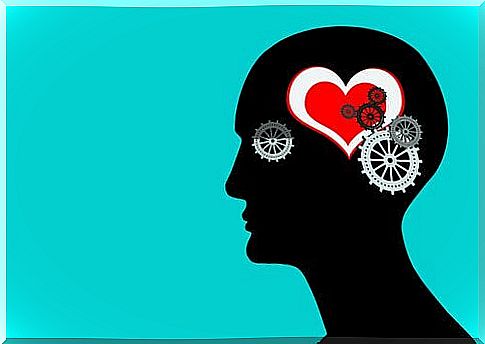2 Exercises To Develop Emotional Intelligence

Until about the middle of the last century, it was common to think that people were smart if they could solve logical and analytical problems quickly. There was no talk of developing emotional intelligence. In 1964, however, Michael Beldoch introduced another perspective.
This new perspective was based on sensitivity and emotional communication: emotional intelligence. Since the emergence of this concept, the theme has advanced remarkably and gained great relevance.
This relevance was mainly in the field of psychology and psychological knowledge – although it can be studied and applied to many other areas of knowledge. Now what exactly is emotional intelligence?
Emotional intelligence is the ability to manage the emotional world, both in relation to ourselves and in relation to others. Therefore, it starts with self-awareness and, in a second moment, involves social awareness and supposes understanding that many of our behaviors and decisions are based on emotional aspects.
Furthermore, emotional intelligence can be learned if we have the right tools. In this article, you will find two exercises for developing emotional intelligence.
What are the benefits of managing emotions?
Emotions play a fundamental role in our lives: they are responsible for many of our decisions and especially for how we feel at a given moment. Happy, sad, anguished, excited, motivated…
Even though we are rational animals, emotions can come to determine a large part of our behavior and attitudes. Furthermore, emotions help us to stay alive, after all we are social animals.
Emotions are responsible for the proper functioning of interpersonal relationships, thanks to which we manage to ensure our survival. Emotional intelligence is a tool that allows the organization into groups and encourages the correct functioning of social structures.

Now, it is not often that we manage or know how to manage emotions, especially if they are related to difficult situations such as the loss of a loved one. However, people with high levels of emotional intelligence will be able to accept and handle negative emotions as best they can.
This involves being aware of emotions, accepting them, and creating responsibility in dealing with them. These are the fundamental skills for achieving well-being.
For this reason, it is very important to educate yourself about emotions from childhood. In this way, it will be easier to acquire skills to manage the different emotional states that we can experience, reduce those that generate discomfort and increase the range of positive emotions.
Furthermore, understanding the nature of emotions will help us, on the one hand, to understand ourselves and also to more calmly accept what we feel. On the other hand, it will help to identify emotions in others, thus improving our bond with them.
Exercises to Develop Emotional Intelligence
On some occasions, emotions can interfere with our daily lives, work or relationships with others. Therefore, knowing some exercises to develop emotional intelligence can be of great help. Below you will find two very effective exercises for this purpose.
1. Exercise of self-control
Wanting to sweep feelings under the rug or letting your emotions take you completely are not very recommended behaviors. This attitude can cause us to overreact or cause a very deep unease because of everything we end up harboring within us.
In order for this not to happen, we must exercise our self-control. The first step we must take to do this is to identify the emotions we are feeling, and then know how to proceed. In the case of anger, for example, we must identify as soon as possible why we are feeling this way.
Are we angry at someone else for what they did? Or, on the contrary, are our feelings arising because we had a bad day? Was it a specific event? Or several small events?
Understanding why our emotions usually help to deal with and change them. Also, it is important to reflect on why we are feeling something. Often, the answer to this question will reveal to us its function or the hidden need that got us there.
The next step would be to accept that emotion rather than reject it. That is, observing without judging and then deepening your understanding of what she is trying to tell us. Of course, if it was too intense, we might have to take more drastic measures.
Sometimes we need to get away from what’s causing the emotion, or at least let the trigger off for a while. However, we need to understand it first.
After doing this exercise of stepping back, even if it’s only temporary, we can do some breathing, relaxation, or meditation exercise to calm ourselves down and make the intensity of the emotion lessen.
Whatever the case, this exercise in self-control will help us to stop for a while, assess the path we are taking, and reflect. This will always cause the emotional intensity to lessen.

2. Leverage positive emotions
Positive emotions determine our emotional well-being. A motivated, optimistic, and enthusiastic person will make better progress than someone with feelings of despondency, disillusionment, and apathy.
Therefore, it is very important to identify the thoughts that provoke negative emotions and that make us feel bad on a continual basis, so that we can move away from them.
To achieve this goal, we can keep track of our positive emotions and add some to the list. Therefore, we can write next to the emotions which activities, situations or people can be associated with each one of them.
Reading the list at the beginning of the day and thinking about which of these activities we can do is a way to have more positive emotions daily.
Another exercise to develop emotional intelligence can be to identify the positive emotions we want to increase and think about different circumstances that might generate them. In this way, we will be able to get infected with these sensations.
Or we can simply think about the little details that surround us in our daily lives that make us a little happier. They exist! We just need to fix it.
As we can see, emotional intelligence is a fundamental pillar in our lives, which we can develop if we intend to. Achieving success in this endeavor is a complex process, but it is possible.
Don’t be discouraged along the way. We need some time to appreciate the effects of exercise to develop emotional intelligence. The sooner you start, the faster you’ll see results.









